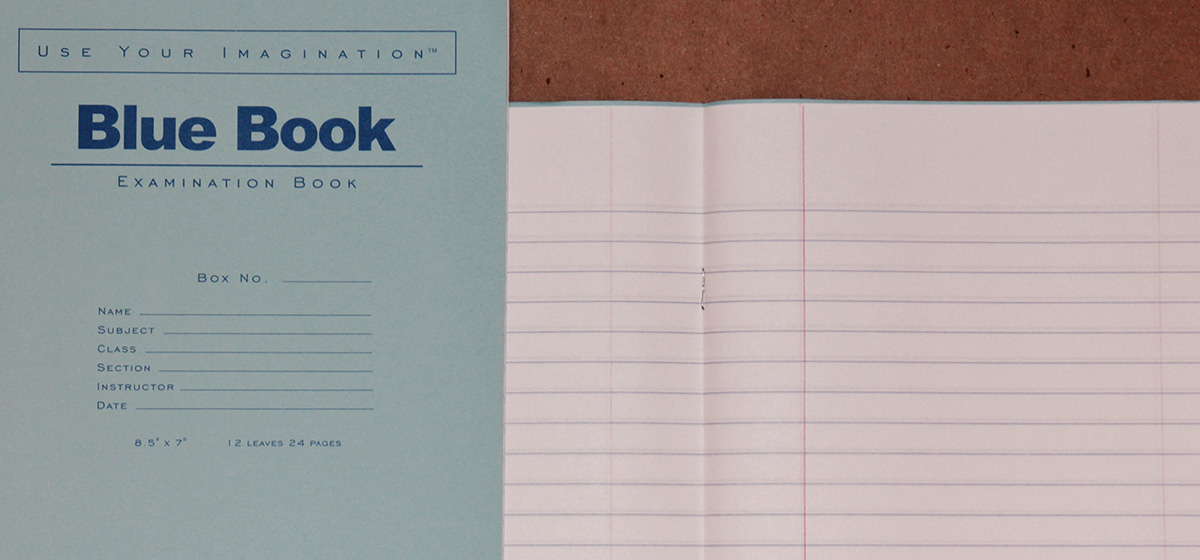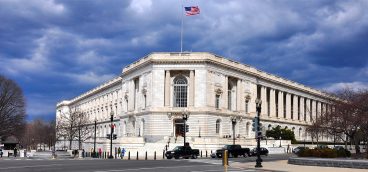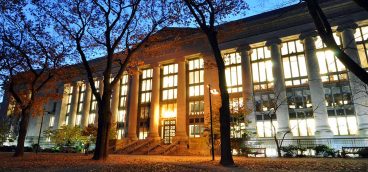Joe Biden Saved Me from Pocatello

I had no intention of going to law school. In fact, I’d already been accepted into a Ph.D. program in English Lit at Yale and fully intended to spend my life writing poetry and teaching literature on some leafy campus.
But then I got my draft notice and suddenly I got a lot more realistic about my life’s work. I applied to law school, which provided a temporary deferment from the draft, got accepted, and started my first year in September. In October I got drafted anyway. The deferment was really temporary.
My draft board let me finish the year, but it was clear I’d be going into the army the following summer. That put a damper on my interest in exciting courses like torts and civil procedure, but I plugged away as best I could.
Harvard Law School had an odd system for first-year students in those days. You started in September, took five year-long courses, and then in May you took five four-hour exams. In between those dates, there were no exams, no quizzes, nothing at all. You had no idea whether you understood the material until you got your grades in June, by which time, of course, it was too late. There were many fewer students in the second year class than in the first.
All went reasonably well for me, and I was pretty sure I was getting at least most of the material, until May. That was when the “reading period” was to start — a two-week period of time when you reviewed nine months of notes and prepared yourself for twenty hours of examinations.
Unfortunately, May 1 was also the date the United States, furious that the North Vietnamese were using neighboring countries as a refuge, invaded Cambodia. Antiwar sentiment was already on the rise by then, and in academia it was virulent.
On May 4, Harvard University simply shut down. Professors refused to profess and students refused to learn. The entire university community marched up and down Massachusetts Avenue tipping over cars, burning rubbish, breaking windows, and generally behaving like two-bit thugs.
I would have been right there with them except I had a problem. The law school had told students to go home (after they finished trashing Cambridge, of course) — exams would be mailed to us and would be taken on the honor system.
Except I wasn’t going home, I was going off to basic training. In a panic, I raced up to the Dean’s office, but no one was there except an elderly secretary. The Dean, of course, was out marching. I returned every 45 minutes or so and finally found the Dean behind his desk, red-faced and grinning. He’d obviously had a terrific time out there on Mass Ave.
I explained my dilemma, but the Dean was aghast. “You’re going in the army?” he gasped. “It’s a fascist machine!”
The Dean threw me out of his office and a few weeks later I was at Fort Dix, N.J. The law school was slow getting the exams out, and by the time they arrived at my childhood home in Pennsylvania, where I hadn’t lived for years, I had nearly completed basic training. My parents forwarded the exams to Fort Dix, but by that time I was already at Fort Gordon, Ga., learning to be a military cop.
And so it went. The exams sat around at Dix for weeks while the army bureaucracy tried to figure out what to do with them. When they finally forwarded them to Military Police School at Fort Gordon, I had already been transferred to Advanced Training Academy. And so on and so on until, almost exactly a year later, a tattered package arrived for me.
When I unwrapped the package, I burst out laughing. My first year at law school seemed like a lifetime ago. I couldn’t remember anything about those courses. I immediately called the law school Dean, way back there in Cambridge, and told him there was no way I could take those old exams now.
“Of course not!” he exclaimed. “It wouldn’t be fair to the other students. You’ve had a whole year to study!”
While I stared at the phone, dumbfounded, the Dean told me I would have to take the exams being given to the current first year students. “But that’s crazy,” I said. “I didn’t take those courses or have those professors!”
“I’ll put the exams in the mail,” he said.
It got worse from there, but since it doesn’t reflect well on me, I’ll just skip over those unimportant details.
Except for one episode. I was taking each four-hour exam proctored by a lieutenant colonel — don’t light birds have better things to do with their time? I was muffing the exams badly, but finally I got to the exam for the only course I’d actually taken first year: Black Jack Dawson’s Contracts course.
About an hour and a half into the exam, which I was sure I was acing, my portable radio burped. A bad accident had happened on the base, and since I was the traffic sergeant I had to go investigate it. I pointed this out to the light bird and raced off in my Jeep.
Six and half hours later, I returned to the exam room and told the colonel I was exhausted and would have to finish up the next day.
“Negative,” said the colonel. “You have [checking his stopwatch] two hours and 22 minutes. Begin!”
I sighed, opened my bluebook and rested my elbow on the left-hand page while I began writing on the right page. When I lifted my elbow I saw, to my horror, that there was blood all over the page. Years later, back at law school, I mentioned this to Black Jack.
“So that was you!” Professor Dawson exclaimed. “I always heard students sweated blood over my exams, but that was the only time I ever saw any evidence of it!”
Next in this series: “The Law Works in Mysterious Ways: Joe Biden Saved Me from Pocatello, Part II”





